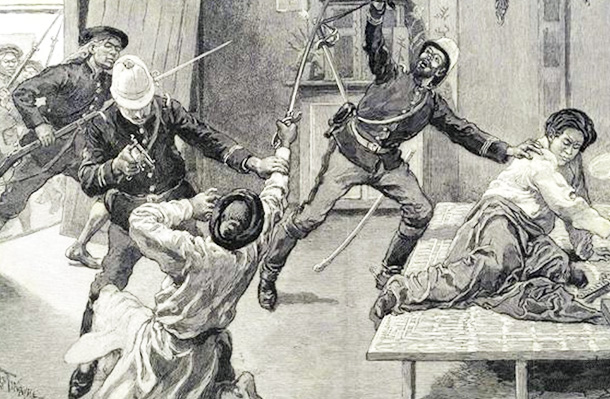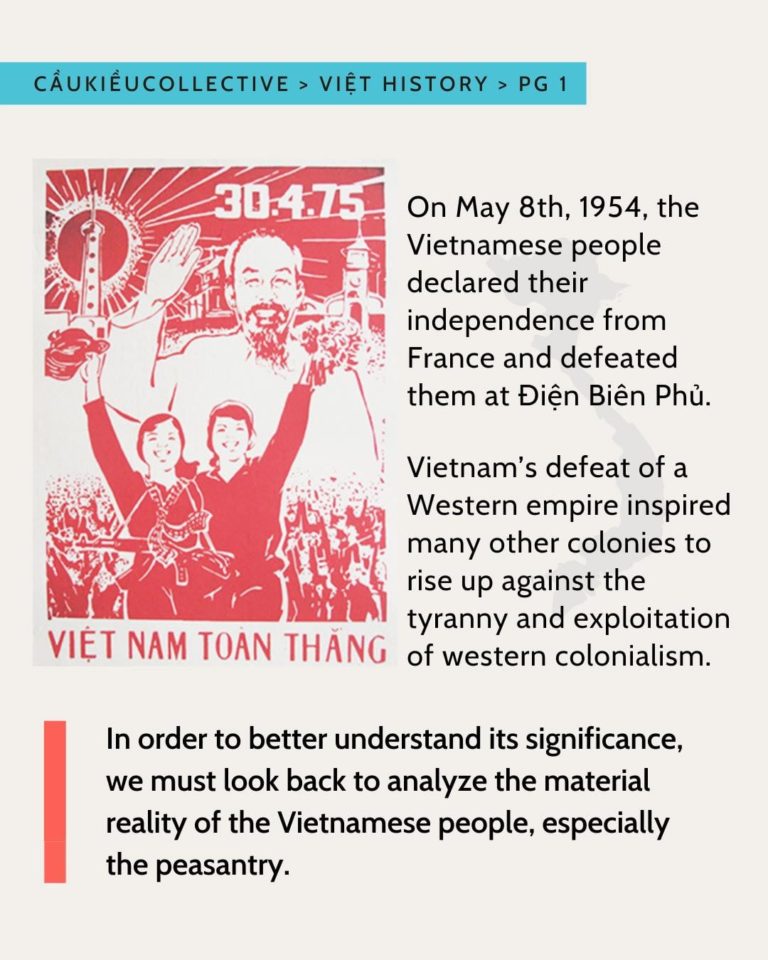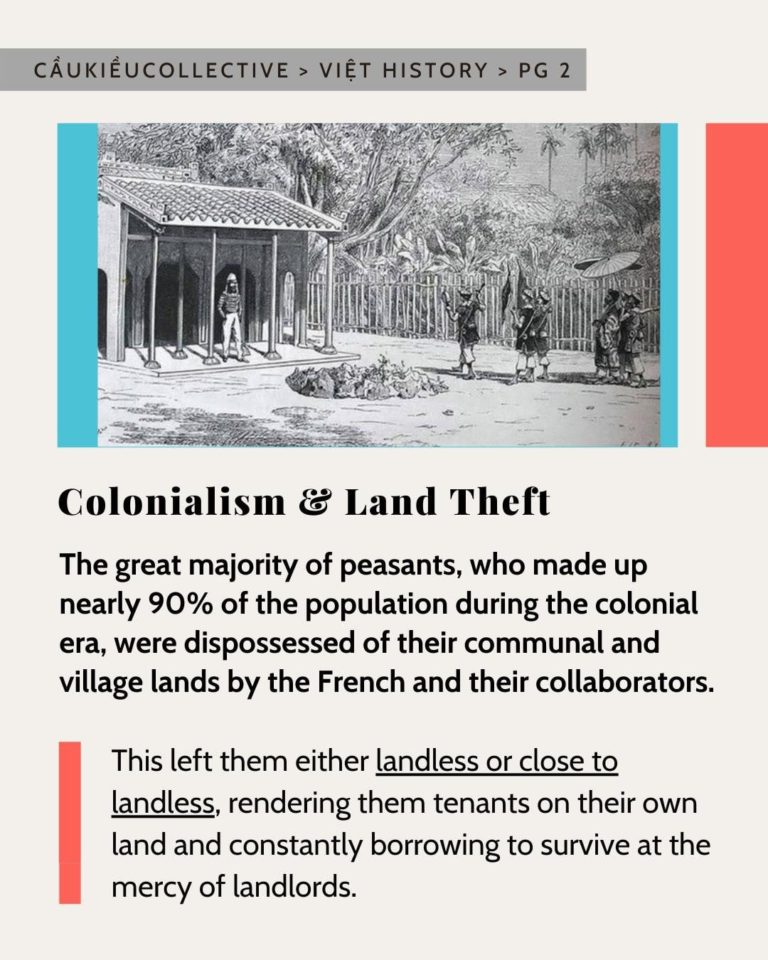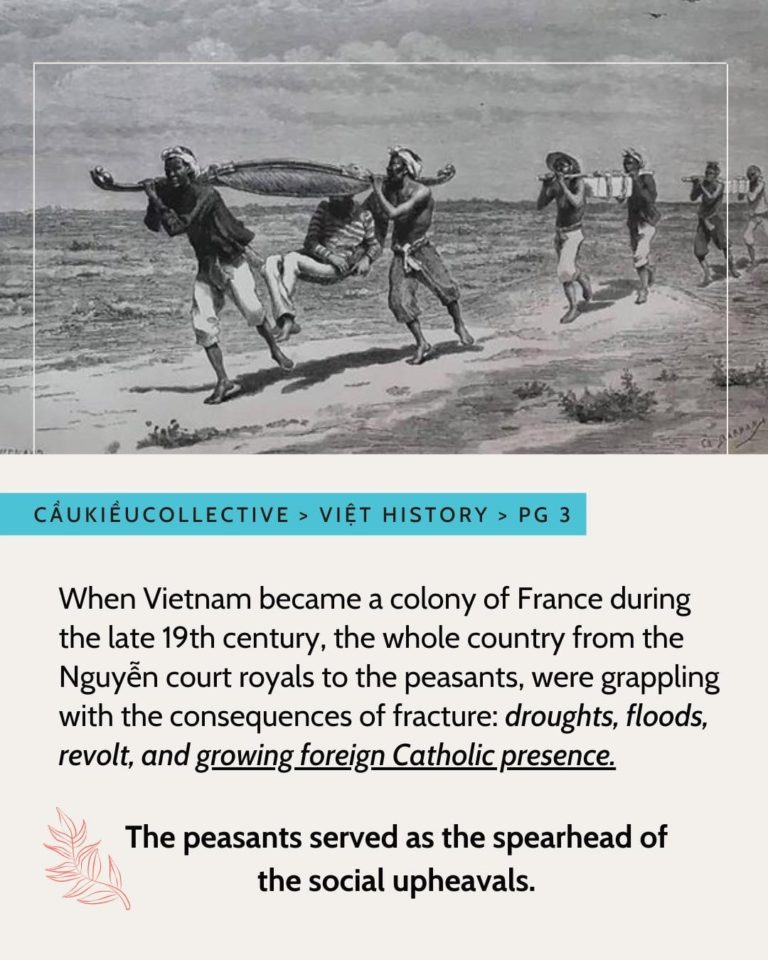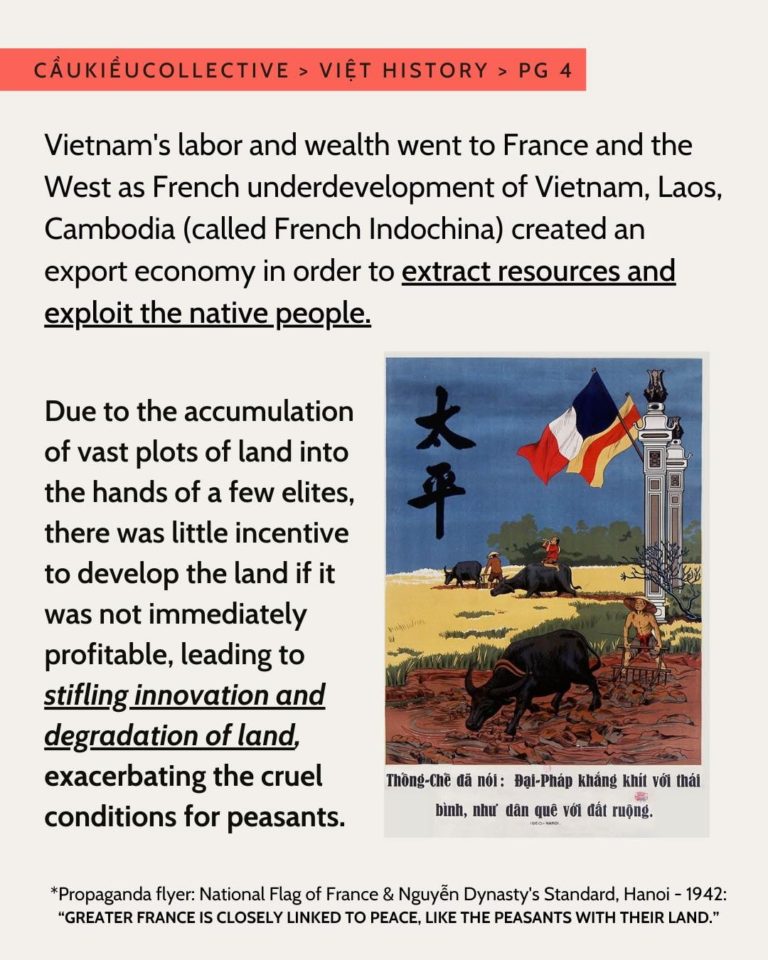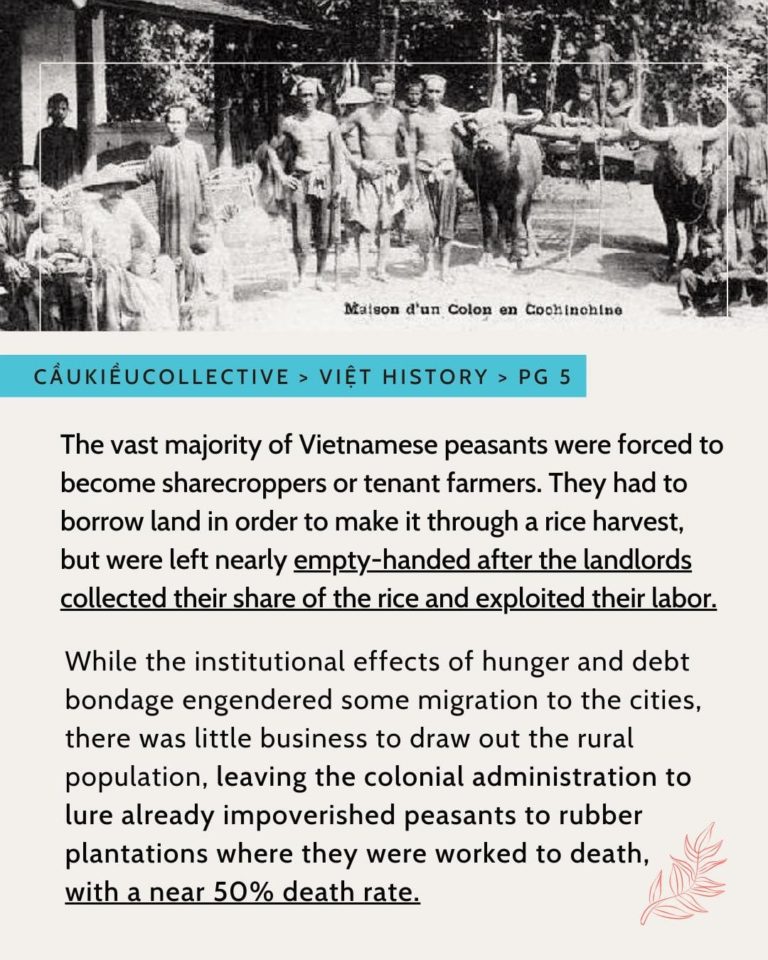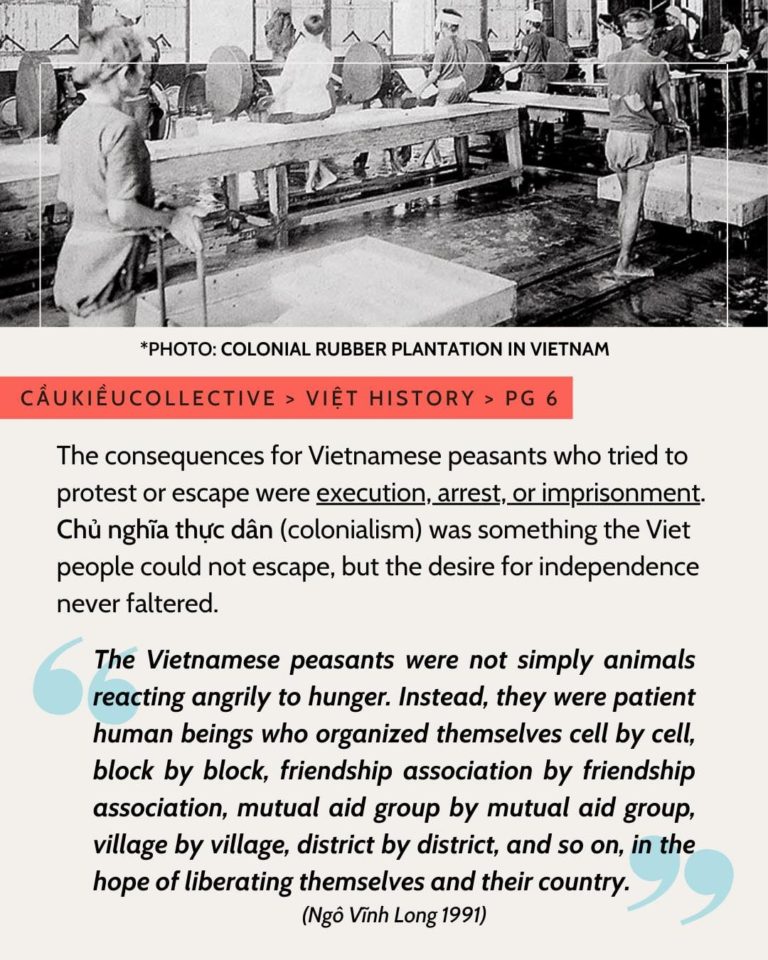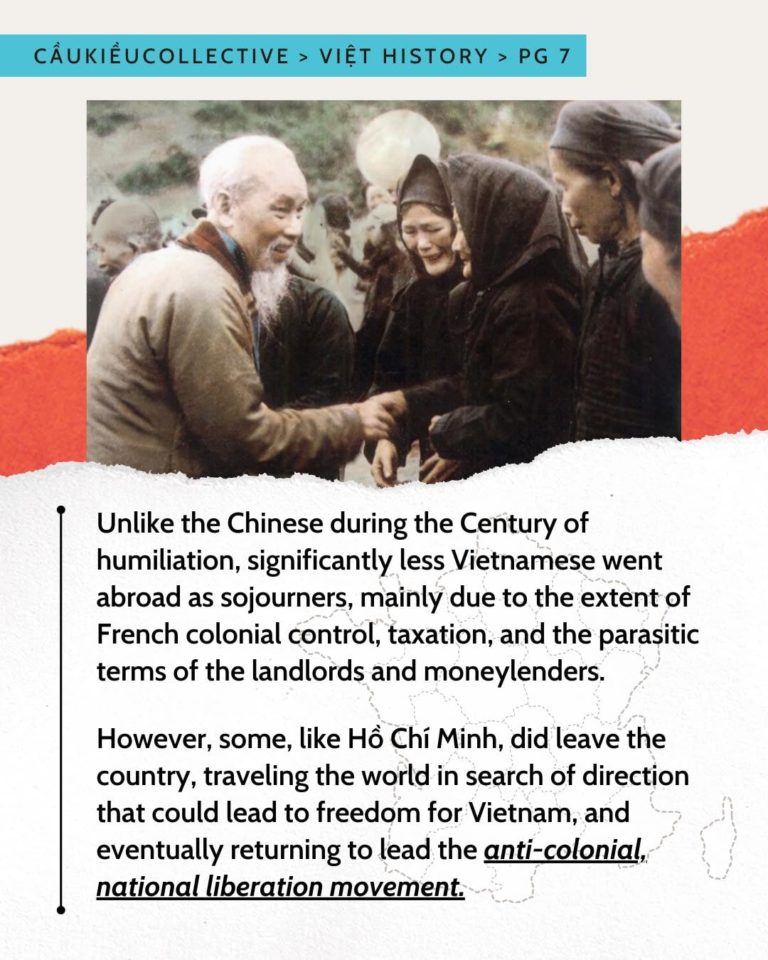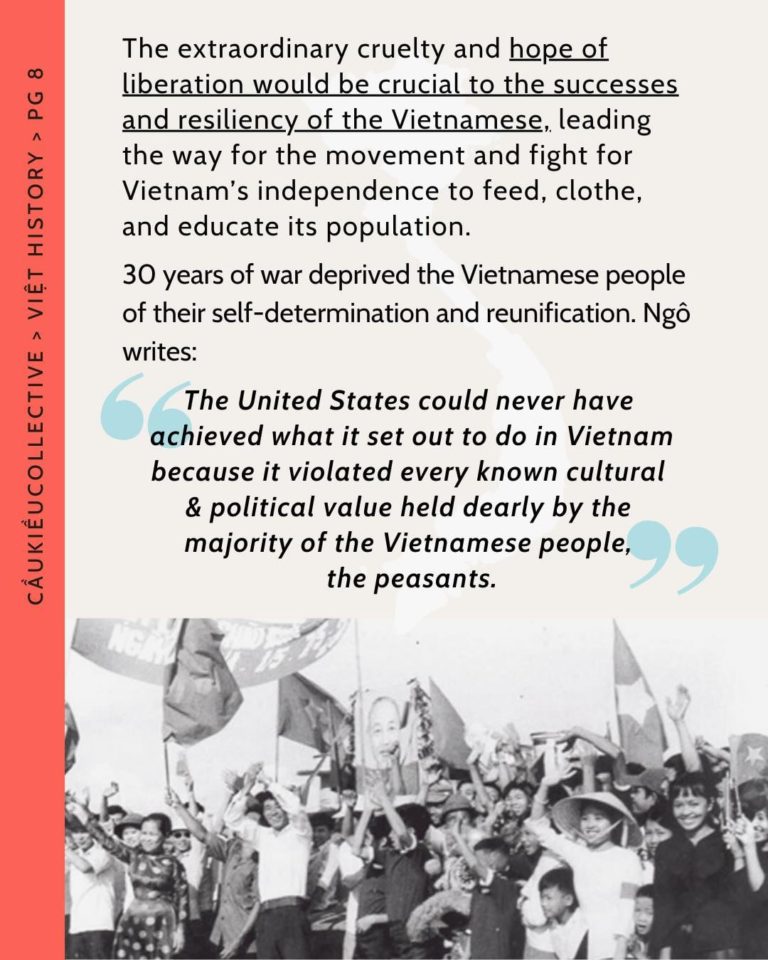TW: Colonialism, Brutality, Racism, US Imperialism, Starvation, War
On May 8th, 1954, the Vietnamese people declared their independence from France and defeated them at Điện Biên Phủ.
It was the second time that a Western empire had been defeated in a war, inspiring other colonies to rise up. (The Haitian Revolution was the first successful insurrection by self-liberated slaves against French colonial rule in 1804.)
In order to better understand its significance, we must look back to analyze the material reality ofthe Vietnamese people, especially the peasantry.
Land Dispossession
The great majority of peasants, who made up nearly 90% of the population during the colonial era, were dispossessed of their communal and village lands by the French and their collaborators.
This left them either landless or close to landless, rendering them tenants on their own land and constantly borrowing to survive at the mercy of landlords.
The Impact of French Colonization
When Vietnam became a colony of France during the late 19th century, the whole country from the Nguyễn court royals to the peasants, were grappling with the consequences of fracture: droughts, floods, revolt, and growing foreign Catholic presence.
Vietnam’s labor and wealth went to France and the West as French underdevelopment of Vietnam, Laos, Cambodia (called French Indochina) created an export economy in order to extract resources and exploit the native people.
Due to the accumulation of vast plots of land into the hands of a few elites, there was little incentive to develop the land if it was not immediately profitable, leading to stifling innovation and degradation of land, exacerbating the cruel conditions for peasants.
The vast majority of Vietnamese peasants were forced to become sharecroppers or tenant farmers. They had to borrow land in order to make it through a rice harvest, but were left nearly empty-handed after the landlords collected their share of the rice and exploited their labor.
While the institutional effects of hunger and debt bondage engendered some migration to the cities, there was little business to draw out the rural population, leaving the colonial administration to lure already impoverished peasants to rubber plantations where they were worked to death, with a near 50% death rate.
The consequences for Vietnamese peasants who tried to protest or escape were execution, arrest, or imprisonment. Chủ nghĩa thực dân (colonialism) was something the Viet people could not escape, but the desire for independence never faltered.
“The Vietnamese peasants were not simply animals reacting angrily to hunger. Instead, they were patient human beings who organized themselves cell by cell, block by block, friendship association by friendship association, mutual aid group by mutual aid group, village by village, district by district, and so on, in the hope of liberating themselves and their country.”
(Ngô Vĩnh Long 1991)
Anti-Colonial National Liberation Movement
Unlike the Chinese during the Century of humiliation, significantly less Vietnamese went abroad as sojourners, mainly due to the extent of French colonial control, taxation, and the parasitic terms of the landlords and moneylenders.
However, some, like Hồ Chí Minh, did leave the country, traveling the world in search of direction that could lead to freedom for Vietnam, and eventually returning to lead the anti-colonial, national liberation movement.
The extraordinary cruelty and hope of liberation would be crucial to the successes and resiliency of the Vietnamese, leading the way for the movement and fight for Vietnam’s independence to feed, clothe, and educate its population.
30 years of war deprived the Vietnamese people of their self-determination and reunification. Ngô writes:
“The United States could never have achieved what it set out to do in Vietnam because it violated every known cultural & political value held dearly by the majority of the Vietnamese people, the peasants.”
Sources
Before the Revolution: The Vietnamese Peasants under the French by Ngo Vinh Long
Dien Bien Phu, Symbol Of All Time. The Fall of the French Empire by A lain Ruscio
Ho Chi Minh: Remembering the King and the Saint by Archishman Raju
